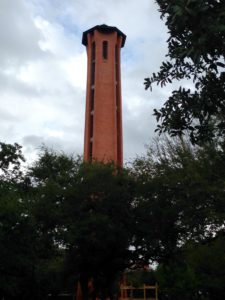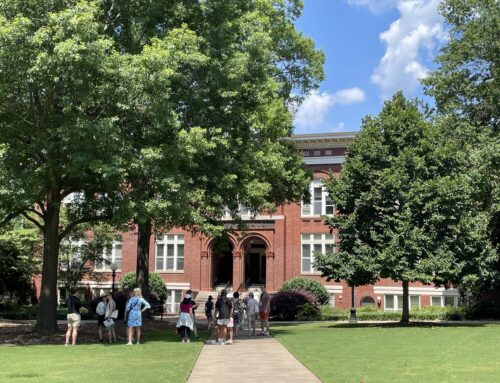 At a time when more and more students are feeling pressured to choose a major long before they set foot on a college campus, Trinity University in San Antonio, Texas (not to be confused with Trinity College in Hartford, Connecticut) takes the opposite approach. In fact, Trinity students are discouraged from declaring a major until the end of their sophomore year. The school prides itself on its academic flexibility, which enables students to take a wide variety of classes in order to determine what they’re most interested in.
At a time when more and more students are feeling pressured to choose a major long before they set foot on a college campus, Trinity University in San Antonio, Texas (not to be confused with Trinity College in Hartford, Connecticut) takes the opposite approach. In fact, Trinity students are discouraged from declaring a major until the end of their sophomore year. The school prides itself on its academic flexibility, which enables students to take a wide variety of classes in order to determine what they’re most interested in.
Trinity’s Pathways curriculum illustrates this idea of discovery. All students take a first-year experience class in the first semester of freshman year. The class, which has no more than 15 students, is built around a theme and emphasizes critical reading and writing, research and analysis, discussion, and presentations. It also includes field trips, community service, and outside speakers.
The Pathways curriculum includes a course in each of the following disciplines: quantitative reasoning, humanities, social and behavioral sciences, arts, and natural sciences. Additionally, students must take courses that help them improve their written, oral, and visual communication skills; acquire digital literacy; understand diversity; develop global awareness; and learn a foreign language. Students take a 3-course interdisciplinary cluster in which they study a complex issue from the perspectives of three different subject areas, and they take one P.E. class.
Trinity’s size — 2,300 undergraduates — is comparable to that of many small liberal arts colleges. Yet, not only does the university offer a wide range of liberal arts and sciences degrees, it has a fully accredited business school and an accredited engineering program. Trinity does not grant direct admission to business or engineering, thus reinforcing the school’s desire for all students to explore and take their time to decide on a major.
Even after students have decided, they are in no way limited by their choice of major. The Center for Innovation and Entrepreneurship is open to all students, not just those in the business school. Through the Center, students can develop start-up businesses and can compete to receive funding from venture capitalists. There is also an interdisciplinary entrepreneurship minor, and another unique minor is called Arts, Letters, and Enterprise. It consists of business courses for non-business majors, and students also can do an internship at a non-profit organization.
The Office of Experiential Learning coordinates opportunities for students to enrich their classroom experiences through service learning, community service, research, and internships. In addition to research in engineering and the sciences, the Mellon Initiative enables students to do research in the arts and humanities. The Summer Research Experience pairs students with a faculty mentor and includes a generous stipend.
Trinity students are very involved on campus. The university has 18 NCAA Division III varsity sports (9 men’s sports, 9 women’s sports), fraternities and sororities, a campus TV station and radio station, and a number of music ensembles that are not limited to music majors. In fact, close to one-fourth of students participate in music activities.
For students looking for off-campus entertainment, San Antonio has sports, arts, restaurants, historical sites, and the famous River Walk. The city, which is the seventh largest in the U.S., also provides an abundance of internships for Trinity students. In fact, 65% of students have done at least one internship by the time they graduate.
Trinity accepts approximately 40% of its applicants, but there is evidence that it is becoming more selective: as of mid-October, there already had been a 20% increase in applications over last year. The university has five deadlines: Early Action I and Early Decision I (Nov. 1); Early Action II and Early Decision II (Jan. 1); and Regular Decision (Feb. 1). The later deadlines are more selective.
In addition to offering need-based financial aid, Trinity is very generous with merit scholarships, which range from $9,000/year to full tuition. Students are automatically considered for these scholarships when they apply for admission.
With all of its resources and opportunities, Trinity University truly lives up to its motto as a place where students can “Discover. Grow. Become.”





